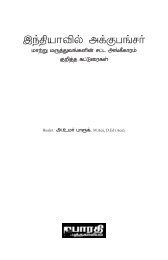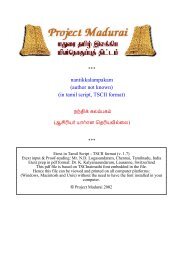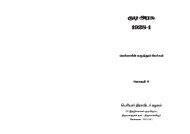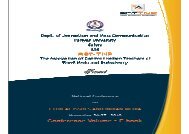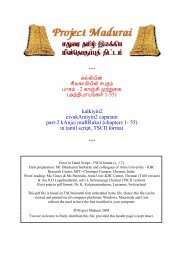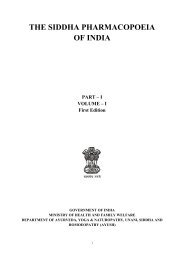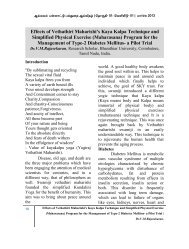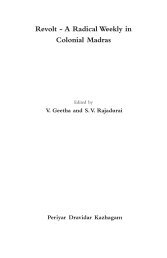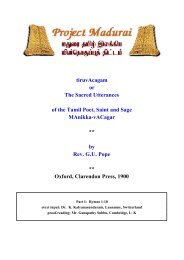THE FUNDAMENTAL RULES OF THE TAMIL NADU GOVERNMENT
THE FUNDAMENTAL RULES OF THE TAMIL NADU GOVERNMENT
THE FUNDAMENTAL RULES OF THE TAMIL NADU GOVERNMENT
- No tags were found...
You also want an ePaper? Increase the reach of your titles
YUMPU automatically turns print PDFs into web optimized ePapers that Google loves.
(2) who, at his own request, is supplied with accommodation which exceeds that which isappropriate to the status of the post held by him, orliving, or(3) who is in receipt of a compensatory allowance granted on account of dearness of(4) who is permitted to sub-let the residence supplied to him, or(5) who sub-lets without permission the residence supplied to him, or(6) who does not vacate the residence after the cancellation of allotment.Instructions under Rule 45-A-IV (c)(ii)(1) and (2).(1) When a Government servant, who is provided by Government with a residence attached to thepost held by him occupies, for his own convenience, an additional residence either at or outside theheadquarters or occupies, accommodation at the headquarters in excess of that appropriate to hisstatus, the standard rent as defined in rule 45-A III (b) or 10 per cent of salary or the concessional ratethat may be applicable to him whichever is least, should be recovered for the residence attached tothe post held by him. The full standard rent as defined in Rule 45-A-III (b) should be recovered for theadditional residence or the additional accommodation occupied by the Government servant at oroutside his headquarters, irrespective of his salary or of the recovery of rent for the residenceattached to the post held by him.(2) When a building is leased by Government for an officer who is not entitled to rent-free quarters,the full rent which the Government will have to pay for the building as well as any other incidentalexpenditure involved in securing a residence for him should be recovered in all cases from the officeroccupying the buildings.(d) When rent has been recovered short, through an error in calculation of standard rent orthrough mistake or inadvertence, the Government servant shall pay the deficiency on demand madewithin twelve months from the date on which the short recovery was made, in such number ofinstalments as the Government may direct.(e)(i) Where the standard rent of a residence cannot be determined for reasons to be recordedin writing at that time of its allotment, the Government servant shall pay such rent as may be fixed bythe Government on the basis of the actual expenditure on the construction or the cost of acquisition ofthe buildings, the cost of fittings therein and the known and anticipated liabilities relating thereto plus10 per cent of the amount so arrived at or 10 per cent of his monthly emoluments, whichever is less.(ii) The rent so fixed shall remain effective until the last date of the calendar month in whichthe standard rent for the residence is determined.(iii) In addition to the rent referred to in sub-clause (e)(i), Government servant shall paymunicipal and other taxes payable by the Government in respect of the residence not being in thenature of house or property tax and compensation for the charges payable by the Government inrespect of the services provided for the residence.(f) Notwithstanding anything contained in sub-clause (e)(i), if recovery for rent is made from aGovernment servant in respect of the residence allotted to him in accordance with that sub-clause oron any other basis adopted before the 6th January 1964 in respect of that residence and the standardrent for that residence has not been determined, the rent so recovered shall be deemed to be the rentfor that residence recoverable under the rules.Instructions.In the case of Government servants occupying Government residential buildings, rent shall berecovered from them for the period of their occupation during joining time on transfers at the rates atwhich they are payable before their transfer.Rent shall be recovered at the same rates from Government servants on transfer, who are allowedto occupy Government residential buildings beyond their joining time because neither the Governmentservants holding additional charge of the posts nor the incoming regular incumbents of the posts forwhom the said buildings are intended are in need of them for the period of such extended occupation,provided that the new posts to which the Government servants are transferred do not carry higherscales of pay. In cases where the new posts to which the Government servants are transferred carry76



